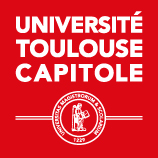You are here : Home > Presentation > CEEC Programmes
CEEC Project 2017-2020
Research programme :
Innovation is also at the heart of research activities, whether these relate to an understanding of innovation through European Union law, or focus on the legal innovation behind the development of a European Union public law that is as disruptive to conventional thinking as it is revealing of the very nature of the European Union.
Activities will focus on paving the way to interdisciplinarity, with a discussion on the opening of law to other subjects and the promotion of this interdisciplinary approach to the subjects of Europe and human rights
Three main activites will focus on paving the way to interdisciplinarity :
Perspectives and coherence of European Union public law (PECODROP UE)
This programme, based on the existence of the new subject of European administrative law comprising the two pillars of constitutional law and administrative law, aims to outline the perspectives of these two approaches while attempting to ensure coherence.
- Part 1: PEACE: Study Programme on the Interaction between the Constitution and Europe
- Part 2: STRUDAE: Structure of European Administrative Law
EuroNum: Programme on ‘digital law in the EU’
Digital raises major economic and social issues for the European Union and the European Commission has made digital one of its policy priorities. Several months ago, the Commission introduced and continues to introduce numerous measures to perfect the digital single market, which is still developing and remains a subject of discussion. In addition, the fight against cyber crime and cyber terrorism demonstrates that digital is also a matter of concern with regard to the creation of the area of freedom, security and justice.
Other issues are now of interest to the EU’s external dimension. Digital by its nature is not controlled by any single territory (the internet is global), and its regulation is a matter for inter-state relations. From an international geopolitical perspective, actors such as the United States, Canada, Russia and China play a key role in the fields of digital technologies and regulation. It is vital that the EU makes its voice heard in bilateral and multilateral relations.
Les Amphis Jean Monnet
The educational part of the project
This includes various units from the Diplôme de l’ESL, designed with the help of a prestigious Strategic Direction Committee to offer innovative teaching approaches.
The ESL aims to train lawyers for Europe. It has a maxim: cultural, linguistic and legal diversity as course components, and student mobility as a vehicle for knowledge building.
The ESL trains the lawyers European actors need, whether private or public. Future lawyers for Europe who will know, understand, compare, articulate and shape national and European laws, learn law through mobility and engage in the necessary cooperation between lawyers.
Educational activities also encourage interdisciplinary learning through the development of skills and expertise complementary to law
- the project is shaped by international openness and intercultural skills, with increased cooperation between universities in different countries (double degrees offered by the ELS) and a focus on legal translation issues.
- Overall, the project aims to open up academic activity both to those in professional environments, often partners or recipients, and to civil society, with many activities to raise awareness of European issues
- the project also looks at the roots of European law: the very design of the training of European lawyers promotes a European legal culture
Please refer to cookies policy





